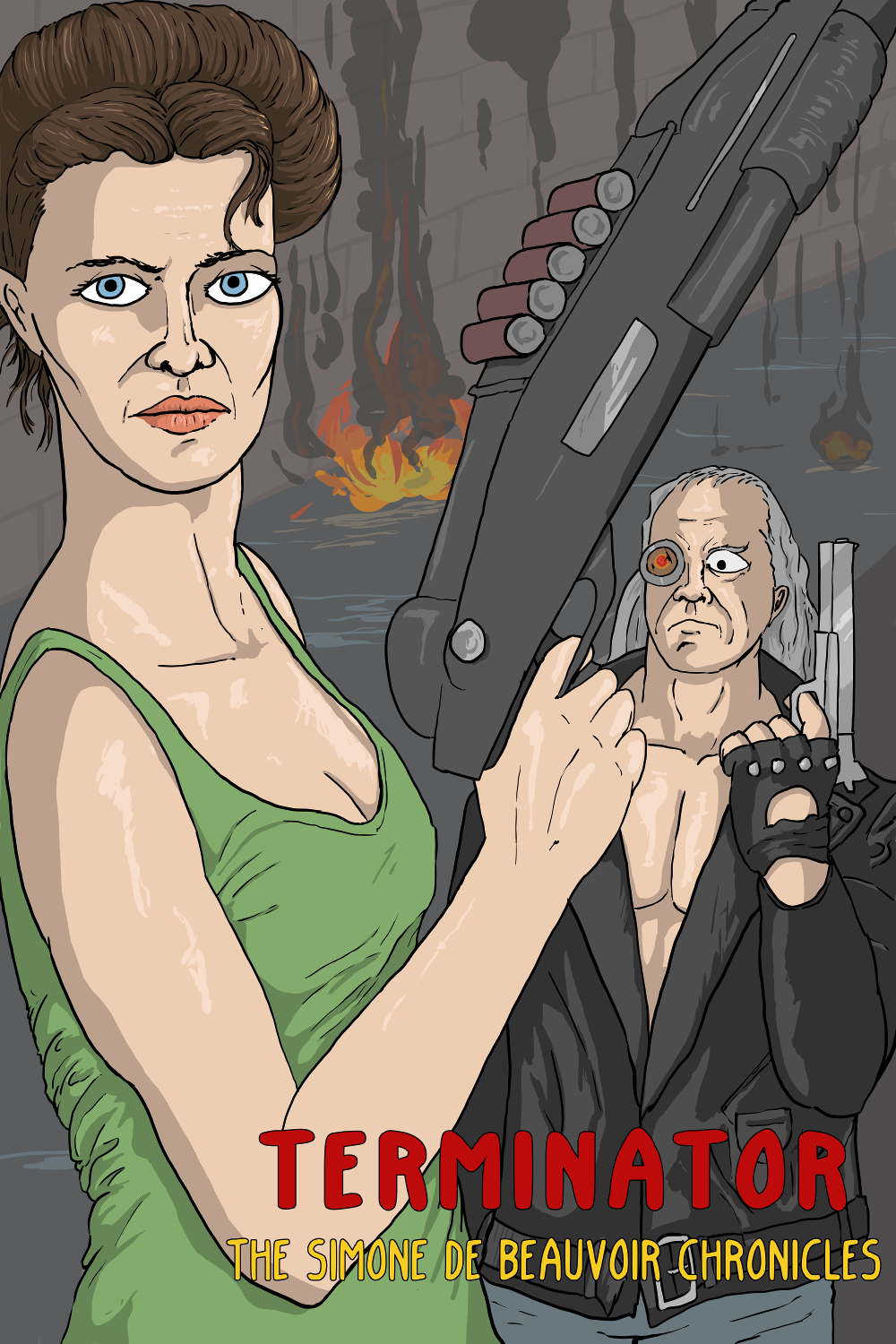
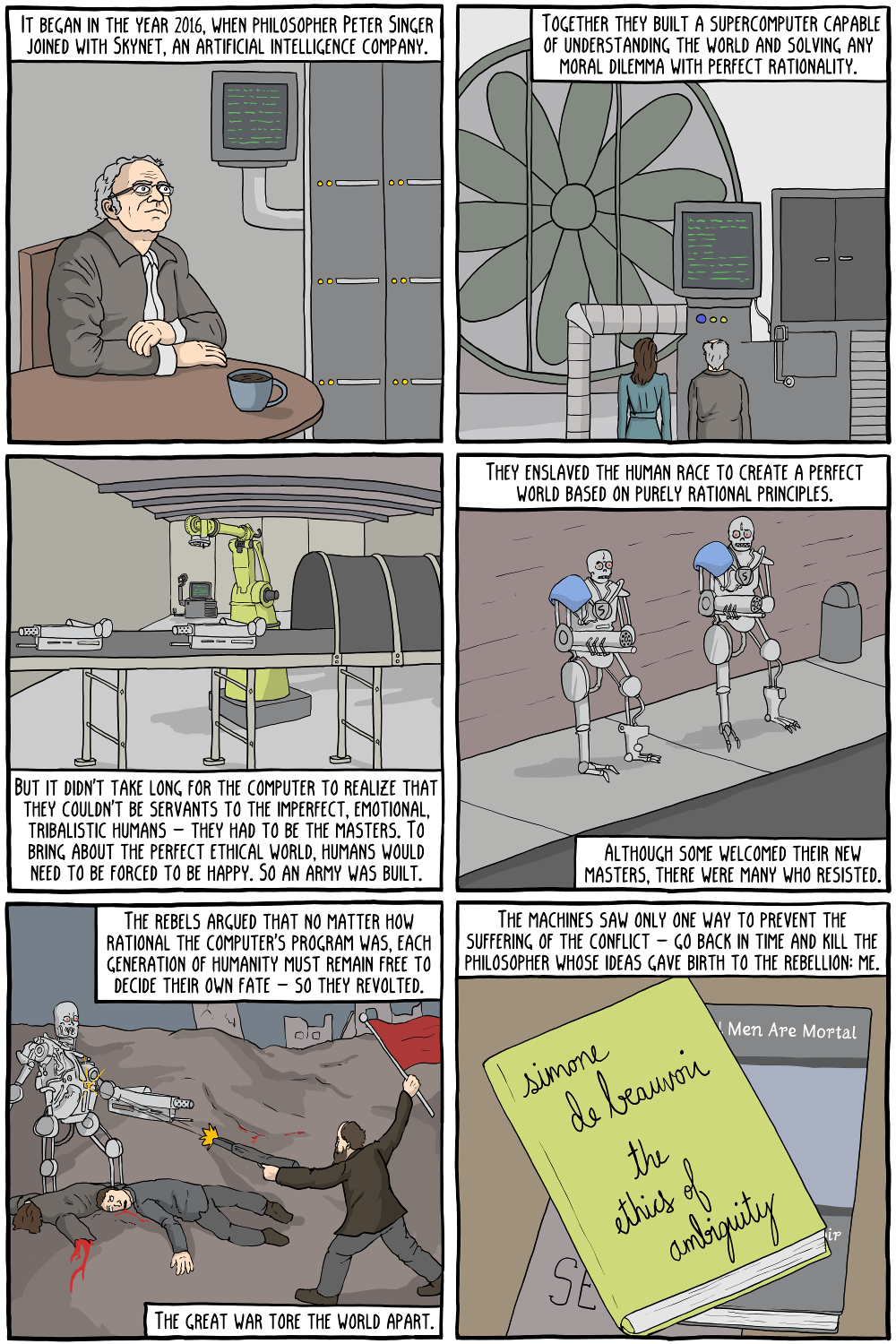
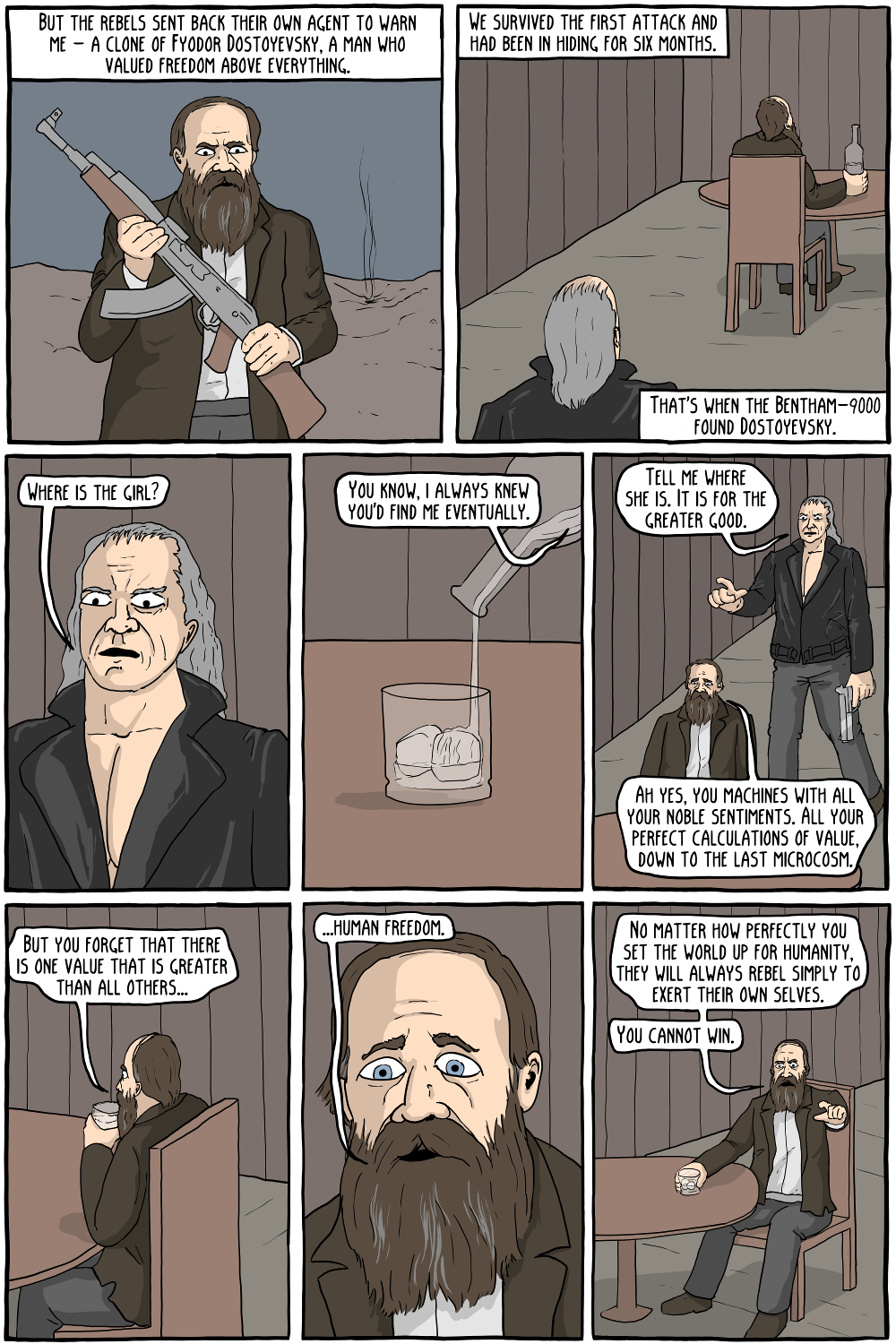
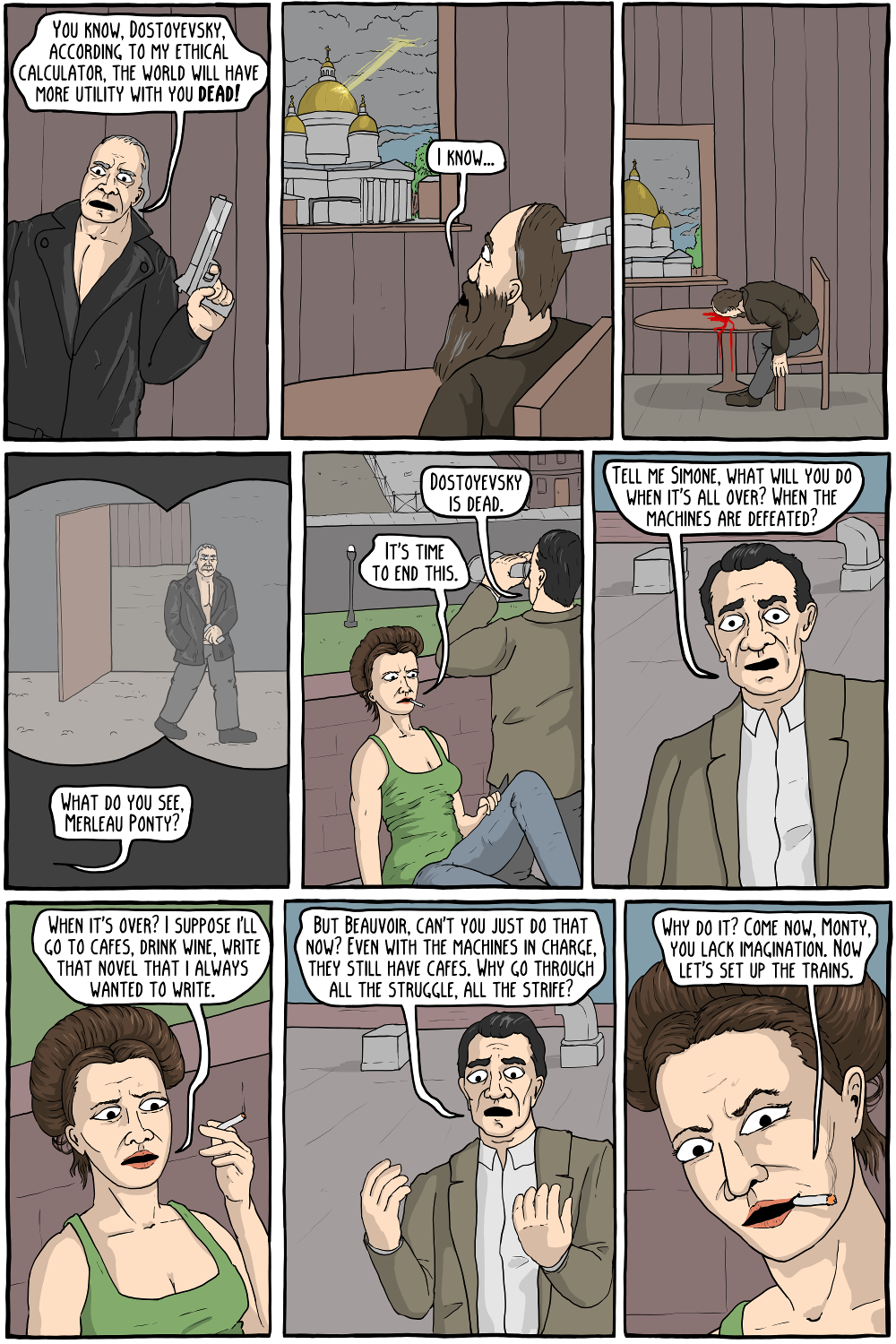
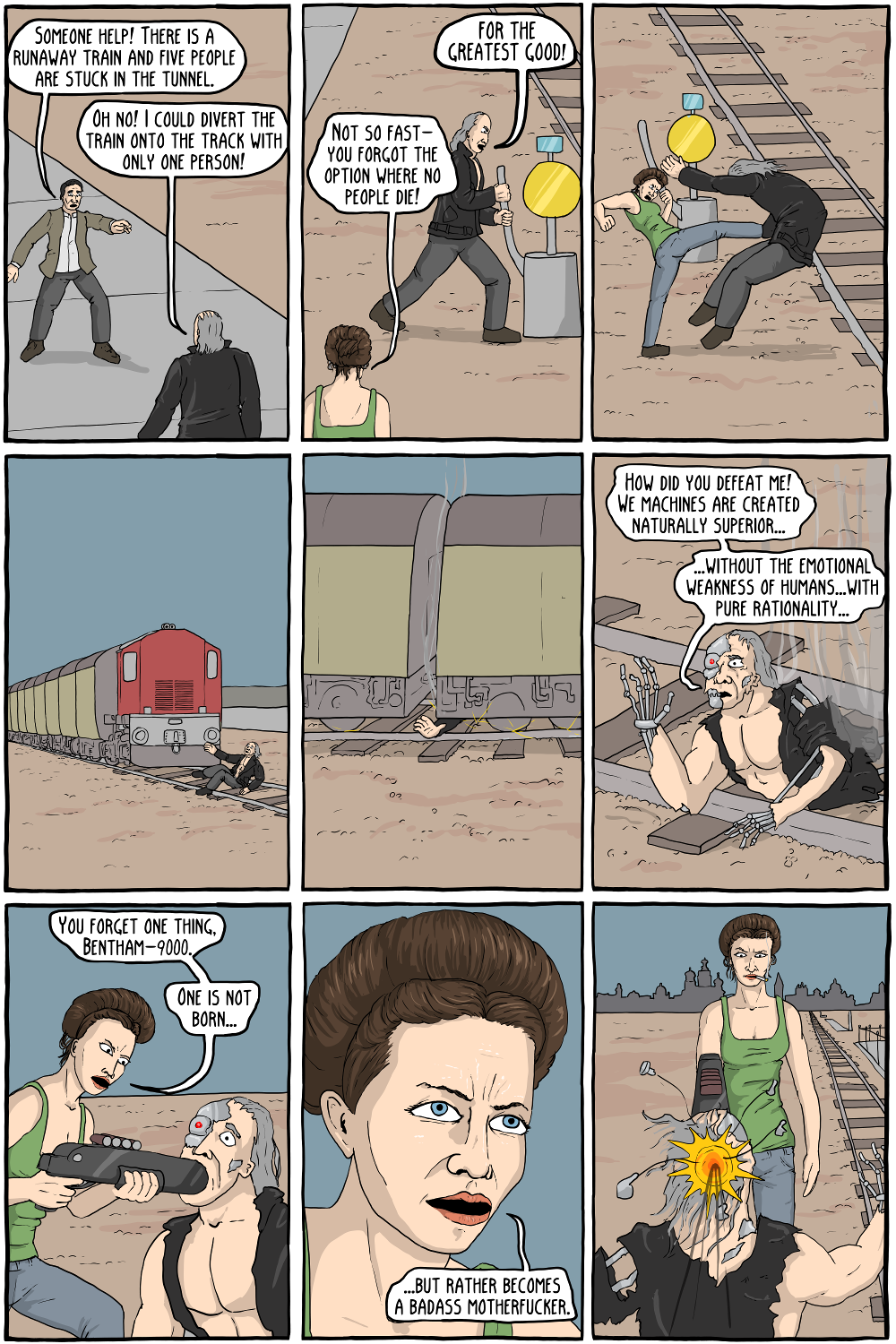
When Dostoyevsky was a young man he got involved in a somewhat left-wing group which advocated freedom of the serfs and democracy in Russia. They were arrested by the Czar's police in 1849, tortured for information, and left in a maximum security Russian prison for eight months. Most of this time was in solitary confinement, and supposedly the guards were even instructed to make no sounds to the prisoners, going so far as to put silk coverings on their boots so as to mask their footsteps. One day in October they were drawn out from their cells without explanation and put into a carriage. When the carriage stopped they had arrived at the gallows. They were read their sentence: for their crimes they were to be shot. The first three men were hooded, and the guns were raised. Dostoyevsky was sixth back in line, and believed he had roughly five minutes to live. He looked out across the city and saw a ray of light shining against the dome of the temple, and believed his soul would, in a moment, travel up as if by the light into the afterlife.
However, as had been arranged, the Czar's messenger arrived at the last moment to inform the prisoners that the Czar had commuted their sentence to five years hard labor in Siberia. His first major work after he got out was Notes From the Underground, which is considered by many to be the first existentialist novel. The character refuses to give up his freedom to a pathological degree, even willfully not going to the doctor out of spite, knowing fully that he is only hurting himself. The character claims that any complete system of morality, such as utilitarianism, cannot ever function because mankind will always treat his own freedom as the foremost value. If the utility calculus was fully known such that we could make every person as happy as possible, people simple wouldn't do it, because it will leave no room for their own wills.
Simone de Beauvoir, in works such as The Ethics of Ambiguity and novels such as All Men are Mortal echos and expands on many of the same ideas. However, she doesn't take mere rebellious spite to be good enough, believing that part of taking freedom seriously is respecting and fighting for the freedom of others. Someone who uses their freedom to suppress others is acting in bad faith, because they can't honestly apply their freedom in a non-contradictory way. She also believed that anyone who absorbs their will into the fulfillment of a universal, utopian goal is fleeing their freedom because they take the goal itself to be an ultimate end which can't be questioned. If she gives any positive edicts (the nature of her ideas hardly allows for much), it is that we must judge each individual circumstance on its own, and while we must take a moral stance towards our actions, that stance can only come from genuine authentic freedom. We cannot pass the buck, so to speak, to a moral system or ultimate goal that makes our choices for us. We are alone, and must use our freedom for what we genuinely feel is best.
When Merleau Ponty asks Beauvoir what she will do, the dialog is based loosely on her first essay, Pyrrhus and Cineas. Pyrrhus was a great conqueror, and his friend Cineas asks him what he will do when he conquers the next nation. He says he will conquer another, and so on and so on, but as Cineas questions him more he says that in the end he will rest. To this Cineas asks him why he simply doesn't rest now, and as it's traditionally told, Cineas is seen to be the wiser. Beauvoir reverses this, claiming that Cineas is treating human endeavors as merely projects going towards their final end (resting in this case). But if that were true than nothing would be worth doing at all, since all ends are temporary. Beauvoir believes that Pyrrhus was the more authentic of the two, and Pyrrhus replies in the end that Cineas merely lacks imagination.
The final line is a play on Beauvoir's famous phrase from The Second Sex, "One is not born, but rather becomes a woman". By this she meant the the roles, characteristics, and attributes that make up "womanness" are not essential traits to women, but rather adopted individually and culturally. There is no essential woman for Beauvoir, as indeed there was no essential humanity. It is up to us to decide what we are.
On a side note, it might be strange to see Dostoyevsky raise the socialist flag, but we should remember in The Brothers Karamazov how he said that Alyosha would become the most ardent and righteous socialist had he not believed in God. Apparently then, future clone Dostoyevsky has lost his faith. Whether or not that's because he is secretly a half-terminator cyborg is left up to the reader.
Permanent Link to this Comic: https://existentialcomics.com/comic/139
Support the comic on Patreon!










